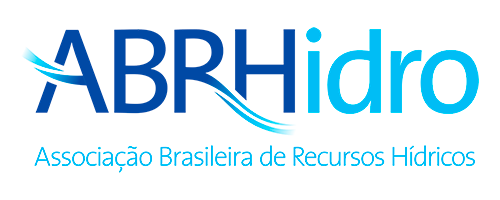ICFM6 - International Conference On Flood Management
Data: 17/09/2014 à 19/09/2014
Local: São Paulo - Brazil
Payment for Environmental Services as a Strategy of Adaptation to Climate Extremes in Araranguá River Basin (PAP014748)
Código
PAP014748
Autores
Luan Harder Gonsalves, Daniel José da Silva, MARIANA DALL'ORTO MELLO RODRIGUES, Sung Chen Lin
Tema
Land use and Floods, landslides and erosion
Resumo
This research is inserted under the Project Vulnerability and Adaptation to Climate Extremes in the Americas - VACEA, by the International Research Initiative on Adaptation to Climate Change - IRIACC, which seeks to understand the climate vulnerability of rural communities in five countries: Argentina, Brazil, Canada, Chile and Colombia. Brazilian researchers use the Model "Water and Territory Governance for Sustainability" (GATS, in portuguese) as a working method, which is organized in 5 steps, called learning cycle: 1) Initial Accordance; 2) Experience Economy, 3) Learning Community; 4) Governance Strategies; 5) Assessment and Prospecting. This work is in step 2, the Experience Economy, which refers to the importance of experience and local stories and identifying best practices . With this work aimed to contribute to the ability to adapt to climate extremes in Araranguá river basin, located in the southern of Santa Catarina. Based on the study of the risk of natural disasters, were identified potential contributions of initiatives highlighted in Payment for Environmental Services (PES) in global, national and regional levels to reduce the vulnerability of the Araranguá river basin. The study of risk has developed through a historical survey of occurrences of natural disasters and analysis of social, economic and environmental vulnerabilities, as well as identifying local adaptive practices. In literature, articles , information systems, civil defense documents and interviews with local leaders, 96 natural disaster was identified between the years 1897 and 2011, reaching all the 15 cities of the basin, being: 38 flash floods, 32 windstorms, 11 hail, 9 floods , 3 tornados , 1 heat waves , 1 drought and 1 hurricane ( first recorded in the South Atlantic). The Ingabiroba Project, developed by an association of local rice farmers since 1999, has achieved good results in recent years to offer discounts to members who donate an area for recovery of riparian vegetation. Today there are more than 4.5 ha of riparian forests recovered. Among the key elements of vulnerability are identified: Social - urbanization, rural exodus , population density and sanitation; Economic - Income inequality, dependence on agriculture and rural poverty; Environmental - water conflicts , water pollution and deforestation. The initiatives highlighted in PES were studied: the environmental policy of Costa Rica, the Conservative of Waters Program, in Extrema/MG and Water Producer of the Red River Program, in São Bento do Sul/SC. The main contributions of PES initiatives to reduce vulnerability of the Araranguá river basin are: educational value of compensation to encourage good conduct, creation of economic opportunities in rural areas, reducing the exodus; incentives for social participation and organization; regulation of ecosystem functions; funds from water charging and taxes on the exploitation of on-renewable resources; potential payments over scenic beauty services in the Serra Geral; prevention of natural disasters, reducing the costs of recovery; laws; partnerships for technical and financial assistance. The results were summarized in a booklet, organized in accessible language in order to propagate the knowledge gained to local leaders.

